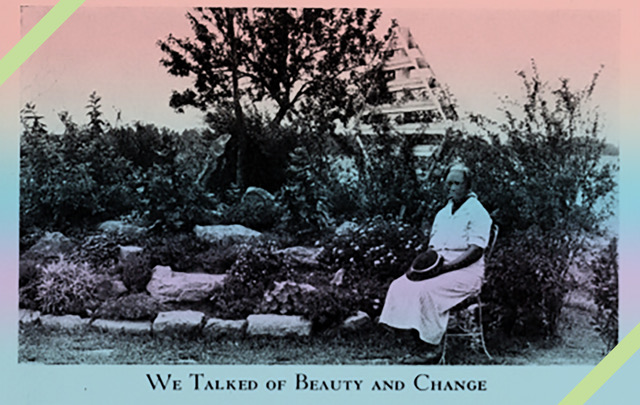### Bridging History and Horticulture: Abra Lee at the Berkshire Botanical Garden
When I first learned that Abra Lee, a cultural historian with a focus on the African-American landscape, was the keynote speaker for the Berkshire Botanical Garden’s ecological plant conference, I found myself intrigued but confused. Why choose a speaker with such a unique perspective for an event primarily centered around horticulture? Yet, upon engaging in conversation with Abra, I began to see the rich, interconnected tapestry she weaves between cultural history and gardening practices.
#### The Intertwined Narratives of Landscape and Culture
Abra Lee’s background as a trained horticulturist, combined with her familial ties to history, allows her to explore themes of landscape creation through a cultural lens. Residing in Georgia and serving as the director of horticulture at Atlanta’s Oakland Cemetery, she navigates a significant historical narrative—one that reflects the segregated sections of the cemetery, representing various cultural groups. For her, the stories of African-Americans and their deep connection to the land in both America and Africa are not just footnotes; they are crucial narratives demanding exploration and recognition.
#### Lessons from the Past: Enslaved Ancestors and Cultural Heritage
The connection between African-Americans and land speaks volumes, with its roots tracing back to the strength of enslaved individuals who, as W.E.B. DuBois noted, helped “conquer the soil.” Abra dives into this historical context, highlighting figures like Harlem Renaissance poet Anne Spencer. Her poetry, deeply inspired by her garden, exemplifies the creative and cultural ramifications of cultivating land. Similarly, Abra draws on personal connections through her own family, particularly her great-aunts and uncles, who tended to their land outside Atlanta. This legacy ties her family to the landscape in enduring ways, reinforcing a collective memory rooted in the soil.
#### Ecological Practices Grounded in Tradition
Abra’s exploration doesn’t stop at cultural storytelling; it extends into the realms of ecological gardening. Her family exemplified a harmonious blend of aesthetic beauty and practicality in their gardening practices—using makeshift materials like bottle walls and painted stone edges sourced from their surroundings. This methodology underscores a vital ecological principle: the importance of observation and adaptability in plant cultivation. Upon returning to her family’s garden, Abra discovered that despite her formal horticultural education, her family’s lived experience—gained through years of trial and error—was invaluable. This delightful interchange between folk knowledge and scientific understanding creates a rich narrative that speaks to the evolution of gardening practices over generations.
#### The Role of Community in Learning and Growth
Abra emphasizes that gardening is not merely an individual endeavor but one that thrives within a community context. The process of learning through observation, experimentation, and embracing failures and successes fosters a communal spirit. As she puts it, “all gardeners are self-taught,” with each individual drawing from a collective wisdom. This ethos of sharing experiences and insights plays a crucial role in cultivating a deeper understanding of the plants we cherish.
#### Insights for the Modern Gardener
At the upcoming conference themed “Rooted in Place,” Abra Lee’s speech promises to unveil new perspectives for attendees. She seeks to instill a profound understanding that the art and science of gardening are intertwined with cultural narratives and ecological principles. Gardening can be a bridge between academic knowledge and rich, lived experiences on the land, reminding us that both traditional wisdom and formal education have a place in our gardening practices.
#### Embracing the Essence of Gardening
As we delve into the lives of gardeners like Abra, we uncover layers of meaning that transcend mere landscaping. Gardens, after all, are not just places of plants; they are spaces of stories, histories, and communal ties. In her work, Abra Lee illuminates the importance of acknowledging these connections as we cultivate both our gardens and our understanding of the world around us.



